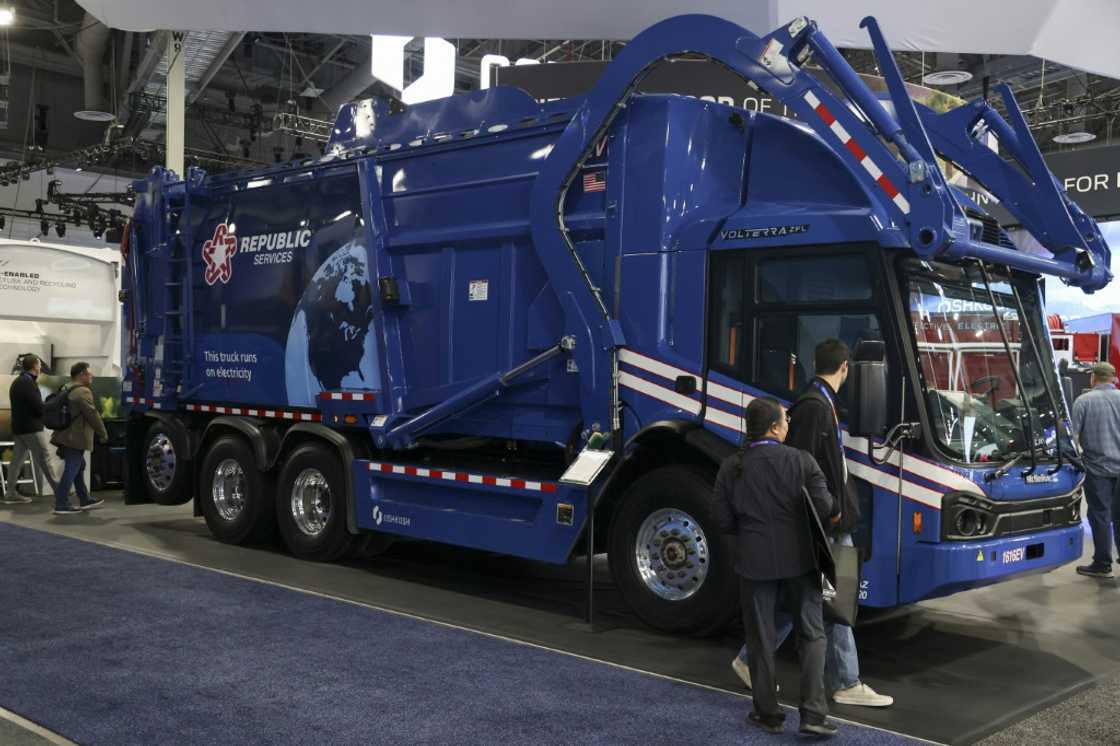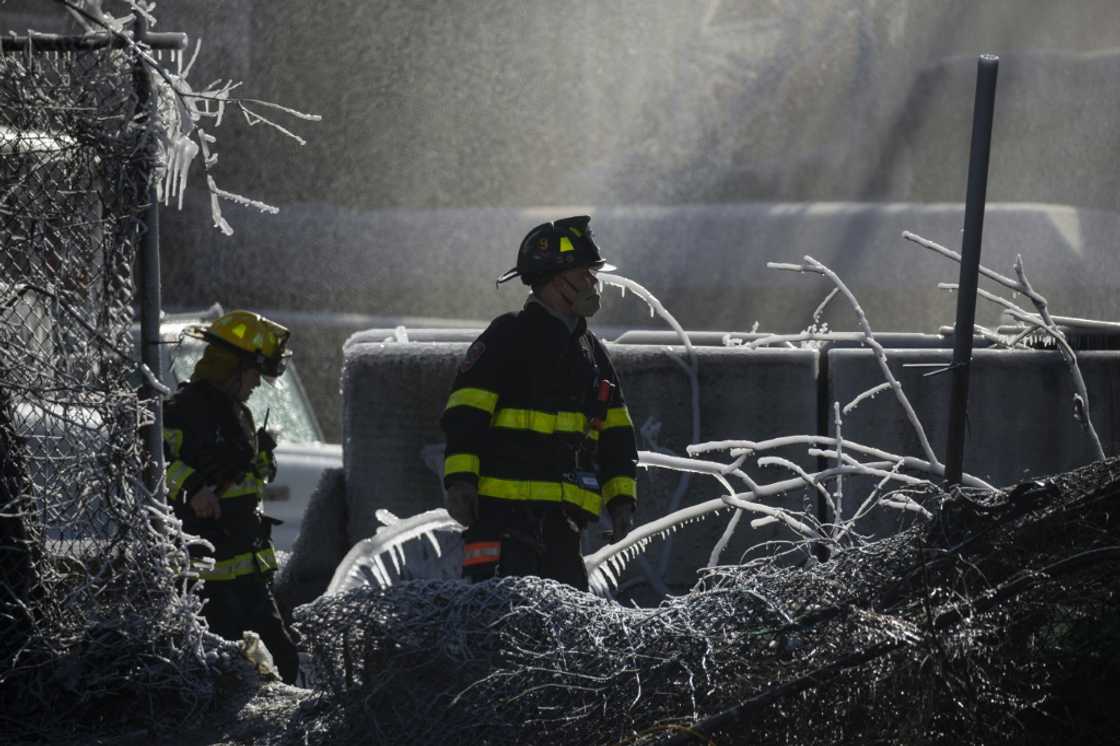At CES, AI-powered garbage trucks reduce battery fire risk

Source: AFP
From laptops to EVs, lithium-ion batteries have fueled phenomenal growth in the 21st century, but businesses struggle with a significant downside: increased fire risk.
At this year's Consumer Electronics Show (CES), companies unveiled a next-generation garbage truck designed to detect these highly flammable batteries.
The innovation comes as careless disposal of batteries from smartphones, electric toothbrushes, and other gadgets has become an acute problem at recycling centers. The owner of a New Jersey recycling plant that caught fire early Thursday pointed to the batteries as a likely cause.
In the United States, across the industry, "a couple of recycling centers burn down every year," said Jon Vander Ark, chief executive of waste management company Republic Services.
Republic showcased their solution at CES: a state-of-the-art garbage truck built by industrial company Oshkosh that screens for the batteries.
The vehicle resembles a conventional garbage truck, weighing in at more than 41,000 pounds and capable of carrying nine tons of cargo. But it is fully electric and outfitted with AI software that scans for problem refuse in garbage and recycling loads.
While Republic already uses detection systems at recycling facilities, batteries sometimes slip through.
If undetected, a forklift can run over a small battery and start a fire, Vander Ark told AFP.
The new trucks allow drivers to flag collections containing batteries as sensitive loads before they reach recycling plants.
"Getting that out of the stream is of huge value to us," said Vander Ark.
Value in trash
The Oshkosh booth also showcased electric arm technology that can speed up trash collections and software that identifies non-recyclable contamination in recycling bins.

Source: AFP
The spiffed-up vehicles provide a font of operational data that can make better use of a trash driver's time, said Oshkosh CEO John Pfeifer.
Companies can pinpoint contamination sources to educate customers or fine repeat offenders, he explained.
The trucks even capture video evidence when drivers can't access bins due to blocked pickup spots.
"When a customer asks, 'Why didn't you pick me up?'...we have video evidence," said Vander Ark.
He noted that waste management is particularly well-suited for electrification since trucks typically travel shorter distances per shift, eliminating the range concerns that often deter everyday EV consumers.
The quieter electric trucks could also allow for earlier morning collections when traffic is lighter, while their overnight charging capability ensures operational readiness.
PAY ATTENTION: Сheck out news that is picked exactly for YOU ➡️ find the “Recommended for you” block on the home page and enjoy!
Source: AFP




